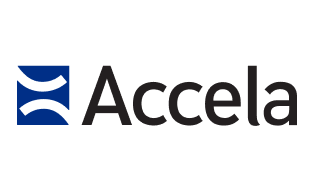As a long-time partner and sponsor, Accela always looks forward to attending The National Environmental Health Association’s (NEHA) Annual Educational Conference (AEC), and the chance to connect with environmental health professionals in person.
This year’s AEC runs from July 15 to July 18 in Pittsburgh, PA and we’re bringing several bright minds in EH with us! Accela’s annual scholarship for the NEHA AEC recognizes creative thinkers who offer smart solutions to an essay prompt covering innovation and best practices in environmental health.
Meet the winners of the Accela Scholarship for the NEHA 2024 AEC!
For four days, our big thinkers will attend sessions on topics such as climate change, data and technology, food safety, emergency preparedness and response, and more at the NEHA AEC.
Meet the winners!
Michael Crea
Executive Director
Florida Environmental Health Association
Rachel Williams
Food Safety Specialist
Snohomish County Health Department
Sarah Thompson
Health Inspector/Environmental Consultant
Wake County Human Services
Lindsay Cunningham, MPH
Registered Environmental Health Specialist
Burlington County Health Department
We received many great responses this year on our prompt question:
What is the greatest single potential of Generative Artificial Intelligence (AI) in reducing department workloads and improving safe communities?
The four winners we are honoring inspired Accela with their thoughtful responses, and every entry contained creative ideas for how environmental health departments could potentially utilize AI. One theme was prominent in the applications: AI may be useful in improving efficiency, identifying and even de-escalating issues (both within the office as well as the regulated community), providing meaningful savings to staff time and allowing health departments to focus on the critical, thought-intensive work of public safety.
Using Artificial Intelligence to Drive Health Department Innovation
The potential for AI to assist in data analysis was immediately clear to many respondents. One applicant suggested that Artificial Intelligence might be used to aggregate past facility data (such as the types of violations, special risks based on the type of business (e.g. what’s on the menu), or other unique factors) to generate data models. Such models could then be used to predict future issues, suggest targeting attention towards higher-risk businesses, or even catch outbreaks early and help departments more quickly identify causes.
Emergency scenarios also caught the imagination of applicants. One entry suggested that in an emergency where internal or public-facing lines of communication might break down or human resources get pulled off routine tasks, AI could be set up to be ready to jump in and make sure critical information makes it to the appropriate audiences. Other applicants envisioned using AI to run risk simulations, such as forecasting the impacts of proposed changes to waste management policies on local ecosystems and communities, or creating scenarios for emergency response preparedness exercises.
Even Small Changes Can Have Big Impacts
While there were many grand proposals for the use of Artificial Intelligence, quite a few responses also focused on the small but meaningful potential impacts on day-to-day work. Interest in AI translating speech to written notes during an inspection or filling out other paperwork, tracking and reporting travel times and mileage, and even inspection route mapping all came up. One inventive proposal was to use AI to identify and even interpret and update documented resources as new rules and laws come into effect.
On the topic of communication, the potential for AI to participate in interactions with members of the public also came up several times. From triaging priority and routing messages to scheduling meetings or inspections and even conducting follow up, applicants saw significant appeal in Artificial Intelligence being a first source of contact with the community. When a foodborne illness complaint is lodged, suggested one applicant, health departments could deploy AI to gather follow up information from the complainant or regulated facility. “This may prevent the need to send an inspector, or at least keep the inspection concise and efficient”.
Artificial Intelligence in Environmental Health: Endless Possibilities
Applicants did emphasize the need to ensure that AI systems are developed and deployed responsibly, with appropriate safeguards in place to protect privacy and prevent misuse and bias. There was also acknowledgement that department staff and community members may be hesitant or uncomfortable with it. Nevertheless, across a record-breaking number of Accela Scholarship applications for the NEHA 2024 AEC, one thing was clear. Environmental health professionals saw Artificial Intelligence as an appealing part of digitalizing and automating environmental health department programs, in a way that could free up staff resources to focus less on administrative tasks and more on the human elements of public and environmental health protection.
Meet Accela at the NEHA 2024 AEC
Stop by Booth 303 to visit with me, catch product demos of Accela Environmental Health and discuss the best ways to leverage our expertise to modernize your processes!
We are a proud sponsor of the AEC’s Technology Track to support the continued advancement of technology in the environmental health practice. At the conference, plan to attend my presentation with San Diego County on using Community Needs Assessment Data to drive county services.
“Community Needs Assessment Data Drive County Services”
Wednesday, August 2nd
4:00 PM to 4:50 PM
Room: Commerce
See you in New Orleans!




